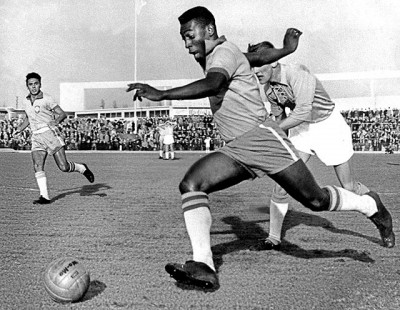In the realm of international organizations, one stands above the rest. As a beacon of cooperation and togetherness, this organization also has more nations as members than any other. It’s not the United Nations, which checks in at a measly 193 countries and 71 years old. It’s FIFA: 209 members, 111 years and one beautiful game.
Among other remarkable things, soccer is older than Jesus. Somewhere between the 3rd and 2nd centuries B.C., a Chinese military exercise strikingly similar to modern-day soccer emerged. Thousands of years thereafter, the game is much the same. Governed by FIFA since the early 1900s, soccer is far and away the world’s most popular sport. It’s also arguably the most corrupt.
Five months ago, the United States Justice Department broke open the case against FIFA. A 236-page indictment, some 25 years of investigation, and more than $200 million in bribes: a condemnation of the world’s largest organization. The buck, it seems, doesn’t stop with FIFA leadership: CONCACAF and CONMEBOL, the governing bodies for North/Central and South America, respectively, have been tied to the scandal. Using language like “betrayal of trust” and “unconscionable,” US Attorney General Loretta Lynch is right to be indignant.
It doesn’t take much critical analysis to determine why soccer is the most-played sport worldwide. Baseball requires bats, balls, gloves and an innate aversion to excitement. American football requires pads and a lack of concern for brain injury. Curling requires Canadians. Soccer simply requires something loosely spherical.
The contrast between soccer’s humble roots and corruption at the top is a disgrace. Former FIFA President Sepp Blatter, with a rap sheet including bribery, election rigging and general misogyny — in 2004 he postulated that women’s soccer could be more popular if the players would just wear tighter shorts — made nearly $4 million last year. That salary could purchase 160,000 One World Futbols, more or less indestructible soccer balls for use in the developing world. For his transgressions, Blatter was banned from all soccer-related activities for eight years. Weeks later, his ban was cut to six years.
FIFA’s new president insists that he’s going to clean up the organization’s image. He promises transparency, fairness and good governance. We shall see. As of this week, FIFA has made one significant change: They’ll be using video assistance during the next World Cup to help on-field officials make correct calls.
For so many around the world, soccer is integral to the fabric of society. It’s an absolute disgrace that away from the pitch and at the highest levels of administration, greed and corruption pollute Pele’s beautiful game.
Jack Siglin is a junior physiology and neurobiology major. He can be reached at jsiglindbk@gmail.com.



